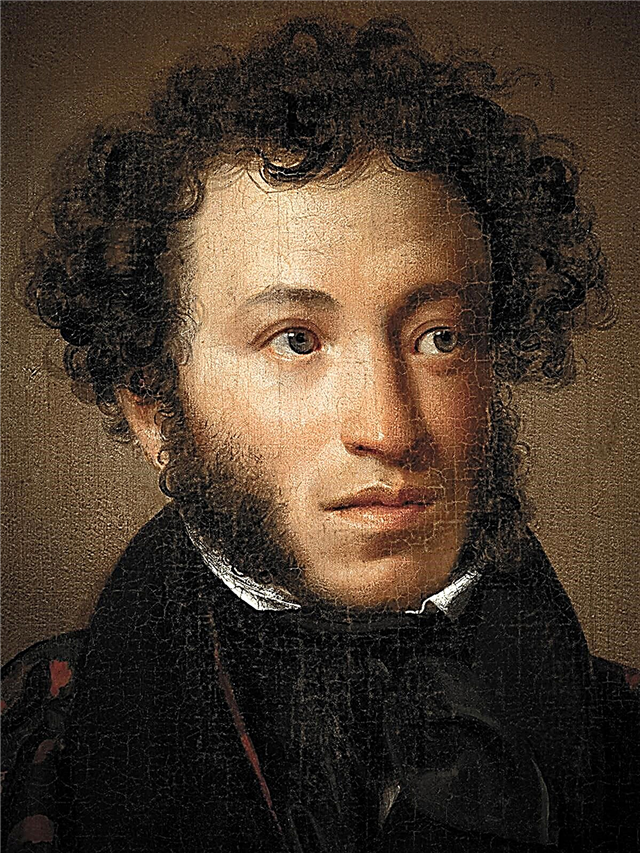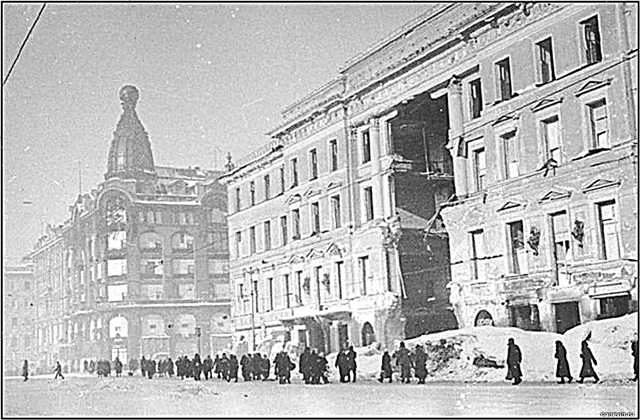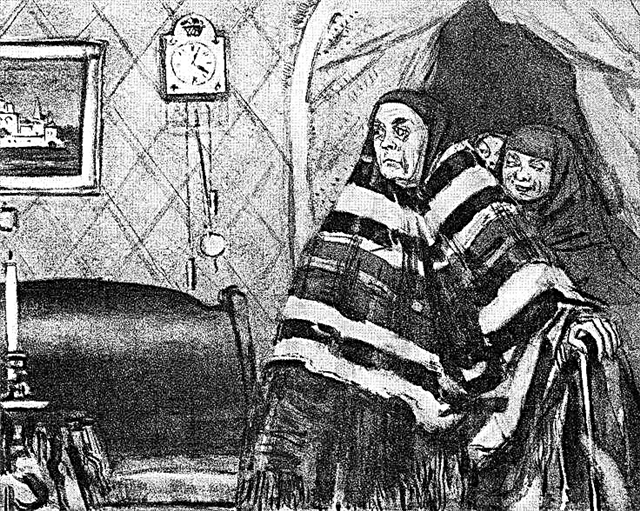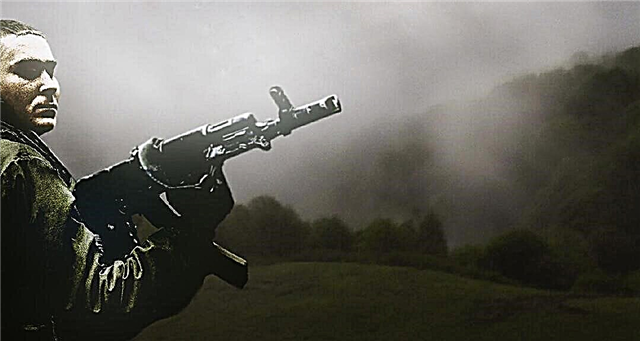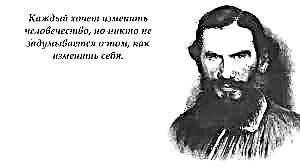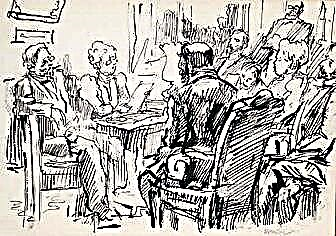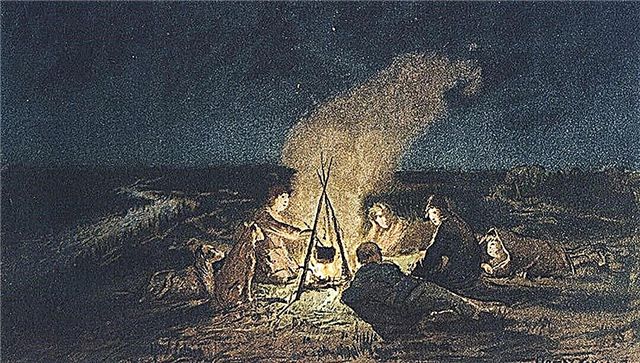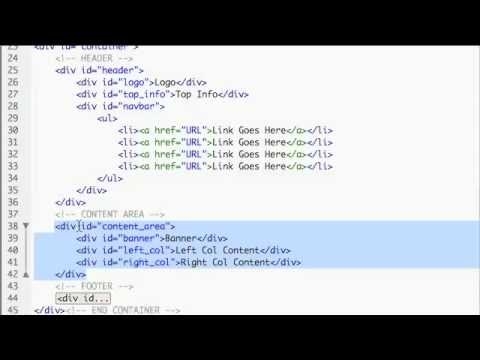The novel takes place in Russia in the early 1900s. Factory workers with families live in the working settlement, and the whole life of these people is inextricably linked with the factory: in the morning, with the factory beep, the workers rush to the factory, in the evening she throws them out of their bowels; on holidays, meeting each other, they only talk about the factory, drink a lot, get drunk - they fight. However, the young worker Pavel Vlasov, unexpectedly for his mother Pelageya Nilovna, the widow of a locksmith, suddenly begins to live a different life:
He goes to the city on holidays, brings books, reads a lot. To his mother’s perplexed question, Paul answers: “I want to know the truth and therefore I read forbidden books; if they find me, they will put me in jail. ”
After some time, Pavel’s comrades begin to gather in the Vlasov’s house on Saturday evenings: Andrei Nakhodka - “crest from Kanev”, as he seems to his mother, who had recently arrived in a settlement and entered the factory; several factory - suburban guys whom Nilovna had known before; people come from the city: a young girl, Natasha, a teacher who has left Moscow from rich parents; Nikolai Ivanovich, who sometimes comes to work with workers instead of Natasha; the thin and pale young lady Sasha, also, like Natasha, who left the family: her father is a landowner, a zemstvo boss. Pavel and Sashenka love each other, but they cannot get married: they both believe that married revolutionaries are lost for work - you need to earn a living, an apartment, raise children. Gathering in the Vlasov’s house, members of the circle read history books, talk about the plight of workers throughout the land, the solidarity of all workers, and often sing songs. At these meetings, the mother first hears the word "socialists."
Mother really likes Nakhodka, and he also fell in love with her, affectionately calls her “not at all”, says that she looks like his late adoptive mother, but he does not remember his mother. After a while, Pavel and his mother offer Andrei to move to their house, and the crest happily agrees.
Leaflets appear in the factory, which speak of workers' strikes in St. Petersburg, about the injustice of the orders in the factory; leaflets call on workers to unite and fight for their interests. Mother understands that the appearance of these leaves is connected with the work of her son, she is proud of him and fears for his fate. After some time, gendarmes with a search come to the Vlasov’s house. Mother is scared, but she tries to suppress her fear. The visitors did not find anything: advance warnings about the search, Pavel and Andrei took the forbidden books out of the house; nevertheless, Andrey was arrested.
An announcement appears in the factory that from each ruble earned by the workers, the directorate will subtract a penny - to drain the swamps surrounding the factory. Workers are unhappy with this decision of the directorate; several elderly workers come to Pavel for advice. Pavel asks his mother to go to the city to take his note to the newspaper so that the story with the “swamp penny” gets to the nearest room, and he goes to the factory, where, having led a spontaneous rally, in the presence of the director sets out the workers' demands to abolish the new tax. However, the director orders the workers to resume work, and everyone disagrees. Pavel is upset, he believes that the people did not believe him, did not follow his truth, because he is young and weak - he could not tell this truth. The gendarmes are again at night, and this time they are taking Paul away.
A few days later, Yegor Ivanovich came to Nilovna - one of those who attended the meetings to Pavel before his arrest. He tells his mother that, apart from Pavel, 48 more factory people were arrested, and it would be nice to continue to deliver leaflets to the factory. Mother volunteers to bring leaflets, for which she asks her friend, who sells lunch for workers at the factory, to take her to her assistant. All those entering the factory are searched, but the mother successfully brings the leaflets and passes them to the workers.
Finally, Andrei and Pavel get out of prison and begin to prepare for the celebration of May Day. Paul is going to carry the banner in front of the column of demonstrators, although he knows that for this he will again be sent to prison. On the morning of May 1, Pavel and Andrey do not go to work, but go to the square, where the people have already gathered. Pavel, standing under the red banner, declares that today they, members of the Social Democratic Labor Party, openly raise the banner of reason, truth, freedom. “Long live the working people of all countries!” - with this slogan of Pavel, the column headed by him moved along the streets of the settlement. However, a chain of soldiers came out to meet the demonstration, the convoy was crumpled, Pavel and Andrey, who was walking next to him, were arrested. Mechanically picking up a fragment of a pole with a fragment of a banner torn by the gendarmes from her son’s hands, Nilovna goes home, and her desire to tell everyone that the children are following the truth, want a different, better life, the truth for everyone, is in her chest.
A few days later, his mother moved to the city to Nikolai Ivanovich - he promised Pavel and Andrey, if they were arrested, immediately take her to her. In the city of Nilovna, conducting a simple economy of the lonely Nikolai Ivanovich, he begins active underground work:
alone or with Nikolai’s sister, dressed as a nun, or a pilgrim-wanderer, or a lace merchant, she travels to cities and villages of the province, spreading forbidden books, newspapers, and proclamations. She likes this work, she likes to talk with people, listen to their stories about life. She sees that half-starved people live among the vast wealth of the earth. Returning from trips to the city, the mother goes on dates with her son to prison. On one of these dates, she manages to give him a note inviting her comrades to arrange an escape for him and his friends. However, Paul refuses to escape; Most of all, Sashenka, who was the initiator of the escape, was upset by this.
Finally comes the day of judgment. Only relatives of the accused were allowed into the hall. Mother was waiting for something terrible, waiting for a dispute, clarification of the truth, but everything is calm: the judges speak indifferently, slurredly, reluctantly; witnesses - hastily and colorless. The speeches of the prosecutor and lawyers also do not touch the mother’s heart. But then Paul begins to speak. He is not defending himself - he explains why they are not rebels, although they are judged as rebels. They are socialists, their slogans - down with private property, all means of production - to the people, all power - to the people, labor - is obligatory for everyone. They are revolutionaries and will remain them until all their ideas have won. Everything that the son says is known to the mother, but only here, in court, does she feel the strange, captivating power of his faith. But the judge reads the verdict: to send all the defendants to the settlement. Sasha is also waiting for the verdict and is going to declare that he wants to be settled in the same locality as Pavel. Mother promises her to come to them when their children are born, to nurse grandchildren.
When the mother returns home, Nikolai informs her that it was decided to print Paul’s speech at the court. A mother volunteers to take her son’s speech for distribution to another city. At the station, she suddenly sees a young man whose face and attentive gaze seem strange to her; she recalls that she met him earlier in court and near the prison, and she understands that she has been caught. The young man calls the watchman and, pointing at her with his eyes, says something to him. The watchman approaches his mother and reproachfully says: “Thief! Old already, but there too! ” “I'm not a thief!” - suffocating from resentment and indignation, the mother screams and, grabbing a bundle of proclamations from the suitcase, hands them to the people around her: “This is my son’s speech, political were tried yesterday, he was among them.” Gendarmes push people closer to their mother; one of them grabs her by the throat, preventing her from speaking; she wheezes. There are sobs in the crowd.



